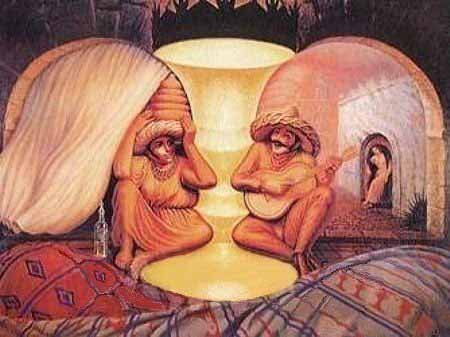

We are all programmed through our DNA codes to age differently. Though there are external factors that influence aging - they too are part of one's programming in the simulation of reality which sets the course of our lives from the day we are born until the end.
Nothing seems to age of person faster than mental illness and substance abuse. Depression and anxiety are running rampant now in 2022 especially after Covid began two years ago as people are burned out. I label all of this 'end times' when people disconnect from the simulation knowing that there isn't a lot of time left. It's all about Covid, climate, crime, and chaos.
Aging is the accumulation of changes in a person over time. Aging in humans refers to a multidimensional process of physical, psychological, and social change. Some dimensions of aging grow and expand over time, while others decline. Reaction time, for example, may slow with age, while knowledge of world events and wisdom may expand. Research shows that even late in life, potential exists for physical, mental, and social growth and development. Aging is an important part of all human societies reflecting the biological changes that occur, but also reflecting cultural and societal conventions. Roughly 100,000 people worldwide die each day of age-related causes.
Age is measured chronologically, and a person's birthday is often an important event. However the term "aging" is somewhat ambiguous. Distinctions may be made between "universal aging" (age changes that all people share) and "probabilistic aging" (age changes that may happen to some, but not all people as they grow older including diseases such as type two diabetes). Chronological aging may also be distinguished from "social aging" (cultural age-expectations of how people should act as they grow older) and "biological aging" (an organism's physical state as it ages). There is also a distinction between "proximal aging" (age-based effects that come about because of factors in the recent past) and "distal aging" (age-based differences that can be traced back to a cause early in person's life, such as childhood poliomyelitis)
Differences are sometimes made between populations of elderly people. Divisions are sometimes made between the young old (65-74), the middle old (75-84) and the oldest old (85+). However problematic this is, chronological age does not correlate perfectly with functional age, i.e. two people may be of the same age, but differ in their mental and physical capacities. Each nation, government and non-government organization has different ways of classifying age.
Population aging is the increase in the number and proportion of older people in society. Population aging has three possible causes: migration, longer life expectancy (decreased death rate), and decreased birth rate. Aging has a significant impact on society. Young people tend to commit most crimes, they are more likely to push for political and social change, to develop and adopt new technologies, and to need education. Older people have different requirements from society and government as opposed to young people, and frequently differing values as well. Older people are also far more likely to vote, and in many countries the young are forbidden from voting. Thus, the aged have comparatively more political influence.
Recent scientific successes in rejuvenation and extending a lifespan of model animals (mice-2.5 times, yeast -15 times, nematodes-10 times) and discovery of variety of species (including humans of advanced ages) having negligible senescence give hope to achieve negligible senescence (cancel aging) for younger humans, reverse aging or at least significantly delay it. In spite of the developments mentioned above and the fact that aging is admitted to be the major cause of mortality in developed worlds the anti-aging and life extension research is greatly underfunded. Although human life is declared to be a basic value in many societies there is still no strong awareness and thus demand of the society to cancel human aging. The body still technically ages after death as it still gets older from birth.
In biology, senescence is the state or process of aging. Cellular senescence is a phenomenon where isolated cells demonstrate a limited ability to divide in culture (the Hayflick Limit, discovered by Leonard Hayflick in 1961), while organismal senescence is the aging of organisms. After a period of near perfect renewal (in humans, between 20 and 35 years of age), organismal senescence is characterized by the declining ability to respond to stress, increasing homeostatic imbalance and increased risk of disease. This currently irreversible series of changes inevitably ends in death. Some researchers (specifically bio-gerontologists) are treating aging as a disease. As genes that have an effect on aging are discovered, aging is increasingly being regarded in a similar fashion to other genetically influenced "conditions", potentially "treatable."Read more ...
Blood of Exceptionally Long-Lived People Reveals Crucial Differences Science Alert - December 30, 2025
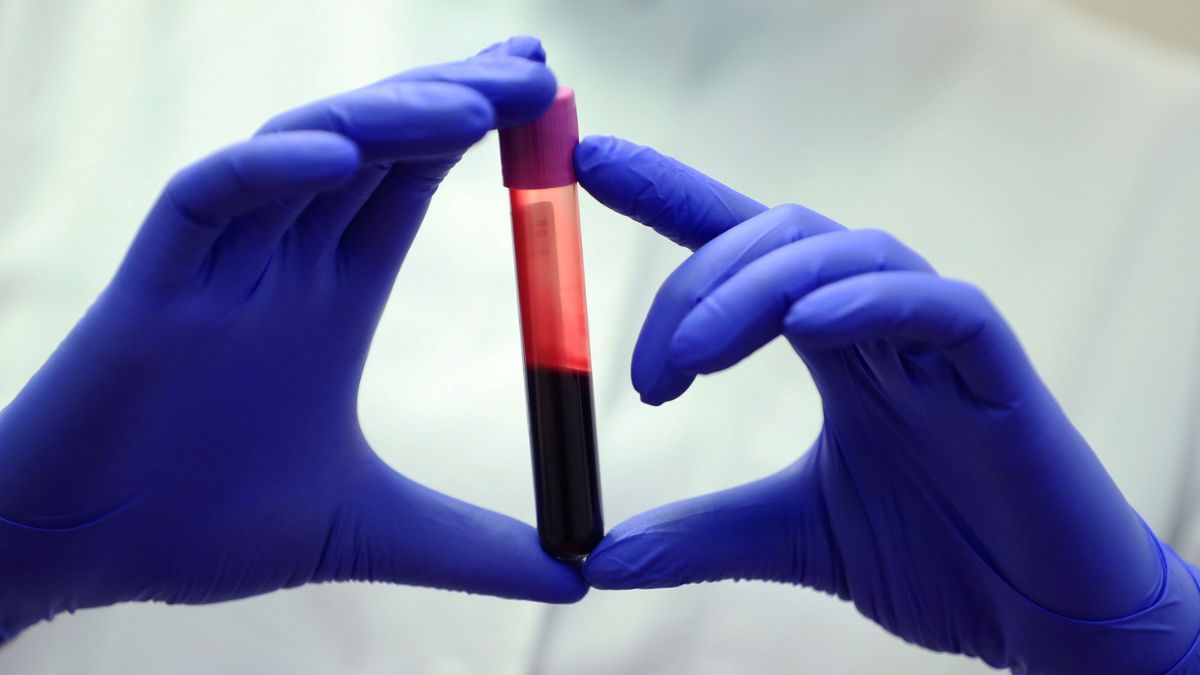
DNA Study of 117-Year-Old Woman Reveals Clues to Long Life Science Alert - December 30, 2025
A Simple Eye Scan Could Flag Heart Risks - And How Fast You're Aging Science Alert - November 5, 2025

The work of a team from the UK and Canada is the latest evidence in a growing body of research showing that our eyes carry signals about our general health and well-being
A new study reveals why time seems to move faster the older we get Live Science - October 21, 2025
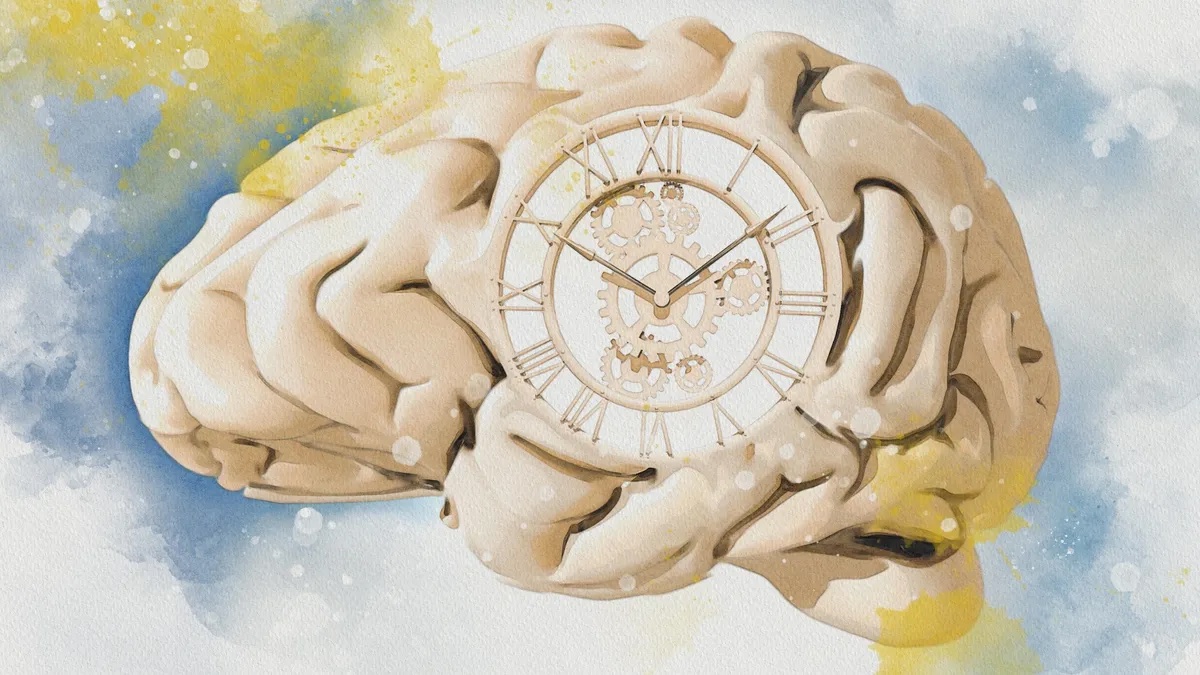
An Expert Reveals How to Keep Your Brain Sharp as You Age Science Alert - October 18, 2025
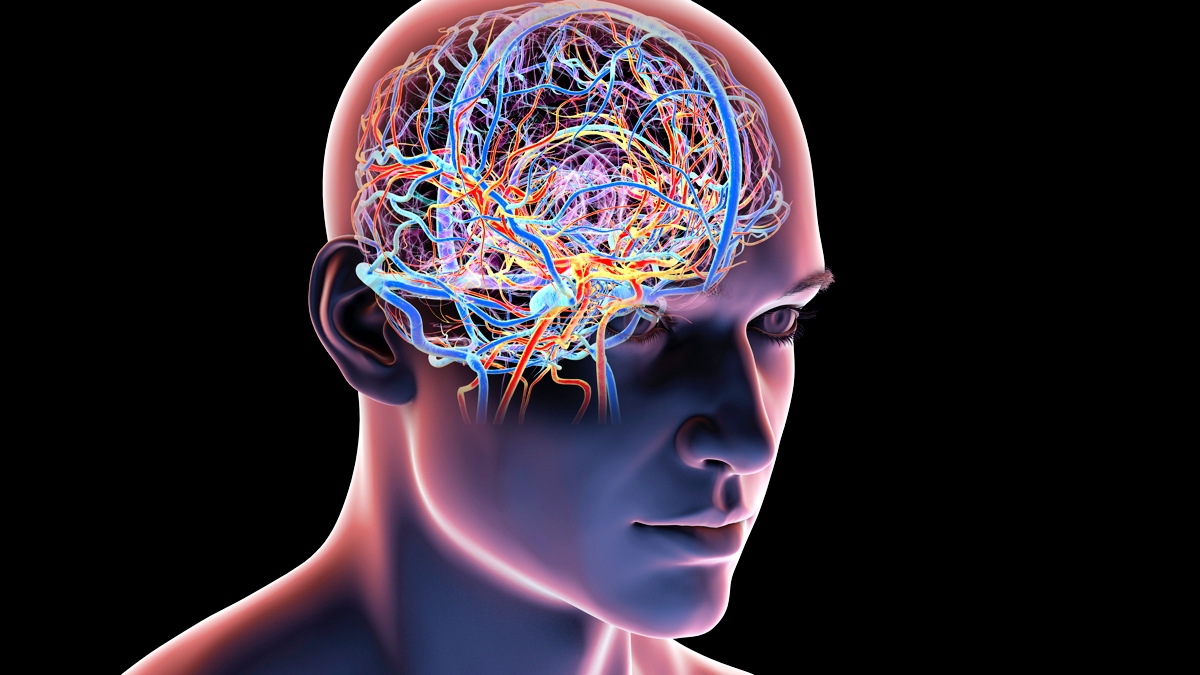
Education has long been considered the main indicator of cognitive reserve. It reflects prolonged exposure to intellectually stimulating activities that promote the development of effective brain networks.
Researchers Discover the Cell's Secret Anti-Aging Mechanism SciTech Daily - October 18, 2025

Hutchinson-Gilford progeria syndrome (HGPS) is a rare genetic condition that causes rapid aging and a range of visible and internal symptoms. Individuals with HGPS often experience early skin wrinkling, reduced skin elasticity, loss of body fat beneath the skin, hair loss, hardening of the arteries (atherosclerosis), and insulin resistance.
Study Reveals The Surprising Age at Which Your Brain Reaches Its Peak - Between Ages 55 - 60 Science Alert - October 18, 2025
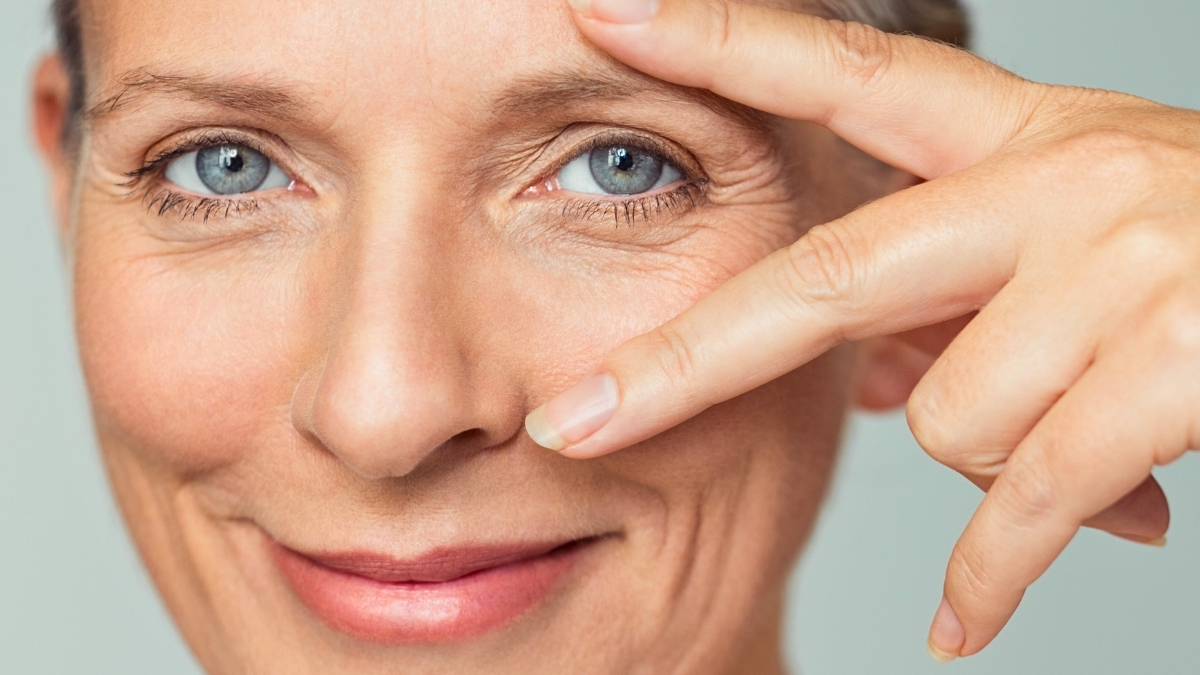
for many of us, overall psychological functioning actually peaks between ages 55 and 60.
Strong friendships may literally slow aging at the cellular level. Science Daily - October 5, 2025

Social bonds, it seems, are as vital to longevity as diet or exercise. The cumulative effect of social advantages across a lifetime - from parental warmth in childhood to friendship, community engagement and religious support in adulthood - may slow the biological processes of aging. These social advantages appear to set back "epigenetic clocks" such that a person's biological age, as measured by analyzing DNA methylation patterns, is younger than their chronological age.
Scientists test an anti-aging pterostilbene cream that actually works Science Daily - September 15, 2025

A 28-day trial showed that pterostilbene cream improved wrinkles, skin firmness, collagen, and pore size far better than a control emulsion. The results highlight pterostilbene as a promising natural ingredient for next-generation anti-aging skincare.
Scientists Discover Hidden Driver of Aging That May Be Reversed called Menin SciTech Daily - September 15, 2025
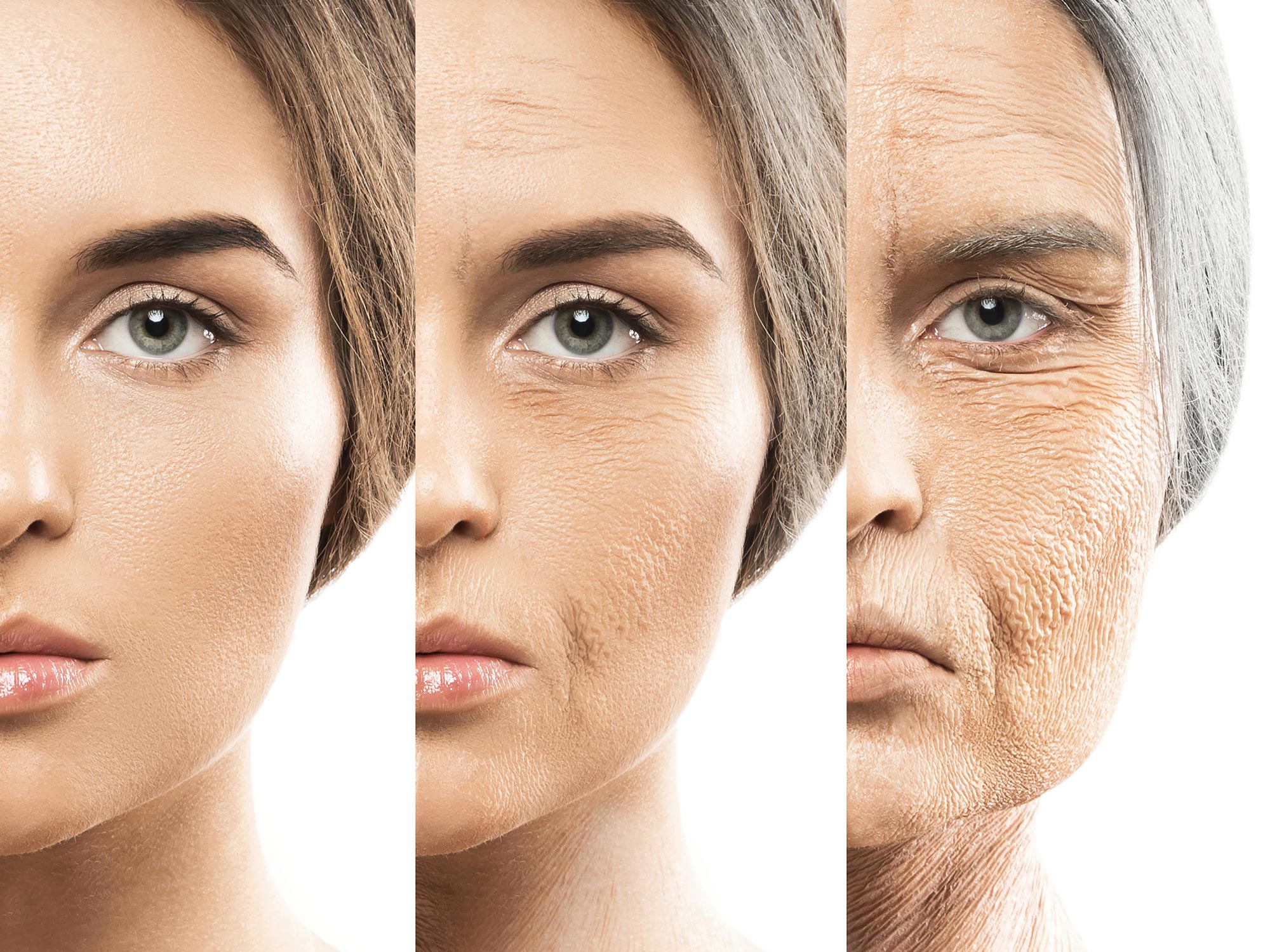
A decline in the protein Menin in the brain’s hypothalamus appears to drive aging by triggering inflammation and loss of key neurotransmitters.
Heat Waves Can Accelerate Aging as Much as Smoking or Drinking Science Alert - August 29, 2025

As our planet steadily gets warmer, our bodies will need to cope with the stresses of higher temperatures. A new study shows that continued exposure to heat waves can age the body as much as regular drinking or smoking.
80-year-old SuperAger brain operates like that of a 50-year-old. Here's why CNN - August 7, 2025

The human brain shrinks as it ages, affecting the ability to remember - it's part of life. Yet there are a lucky few, called SuperAgers, who possess a brain that fights back. For these people, memories stay as sharp as they were 30 or more years in the past. To be a SuperAger in a program at Northwestern, a person must be over 80 and undergo extensive cognitive testing. Acceptance in the study only occurs if the person's episodic memory - the ability to recall everyday events and past personal history - is as good or better than cognitively normal people in their 50s and 60s.
The first 25 years of SuperAger research show cognitive decline is not an inevitable part of aging Medical Express - August 7, 2025

For 25 years, scientists at Northwestern Medicine have been studying individuals aged 80 and older - dubbed "SuperAgers" - to better understand what makes them tick. These unique individuals, who show outstanding memory performance at a level consistent with individuals who are at least three decades younger, challenge the long-held belief that cognitive decline is an inevitable part of aging. Over the quarter-century of research, the scientists have seen some notable lifestyle and personality differences between SuperAgers and those aging typically - such as being social and gregarious - but "it's really what we've found in their brains that's been so earth-shattering for us," said Dr. Sandra Weintraub, a professor of psychiatry and behavioral sciences and neurology at Northwestern University Feinberg School of Medicine.
Exceptional memory performance: SuperAgers score at least 9 out of 15 on a delayed word recall test - on par with individuals in their 50s and 60s. Youthful brain structure: Unlike typically aging brains, SuperAgers show no significant thinning of their cortex - the outer layer of the brain - and even have a thicker anterior cingulate cortex than younger adults. This crucial region of the brain plays a significant role in integrating information related to decision-making, emotion and motivation. Unique cellular traits: SuperAgers have more von economo neurons, which are specialized cells linked to social behavior, and larger entorhinal neurons, which are critical for memory, than their typically aging peers. Sociability as a common trait: Despite having diverse lifestyles and varying approaches to exercise, SuperAgers tend to be highly social and report strong interpersonal relationships.
Is Age Biological Or Psychological? Here's The Science IFL Science - November 4, 2023
We're often told that age is just a number. After all, when '40 is the new 30', but then life begins at 50, it’s easy to think that none of it means anything at all. But there have to be some biological indicators of aging, don’t there - some signs in our bodies that track the passage of time? Or is it really all in the mind?
Unlocking the Secrets of Aging: Researchers Discover Previously Unknown Mechanism That Drives Aging - Gene Length SciTech Daily - January 23, 2023
All cells must balance the activity of long and short genes. The researchers found that longer genes are linked to longer lifespans, and shorter genes are linked to shorter lifespans. They also found that aging genes change their activity according to length. More specifically, aging is accompanied by a shift in activity toward short genes. This causes the gene activity in cells to become unbalanced.
Researchers have rejuvenated a 53-year-old woman's skin cells so they are the equivalent of a 23-year-old's. BBC - April 10, 2022
The eventual aim is to develop treatments for age-related diseases such as diabetes, heart disease and neurological disorders.
The technology is built on the techniques used to create Dolly the cloned sheep more than 25 years ago. The technique cannot immediately be translated to the clinic because the IPS method increases the risk of cancers. But Prof Reik was confident that now it was known that it is possible to rejuvenate cells, his team could find an alternative, safer method.
People live longer. When is someone old? Medical Express - July 8, 2020
The conventional old age threshold is the most commonly used, but it has the disadvantage that it does not change over time and is the same for all countries regardless of their trajectories of aging. This is of course not the case, as today's 65 year-olds are very different from their counterparts half a century ago, and are also likely to be very different from what they will be like half a century in the future. People also age differently depending on where they live and across population subgroups.
There are at least 4 different ways of aging, scientists say NBC - January 13, 2020
Anyone who has attended a class reunion has seen firsthand that people age in different ways. Some former classmates appear to have aged a century within just a few decades, while others look just as they did fresh from 11th grade English class.
A new CRISPR/Cas9 therapy can suppress aging Medical Express - February 19, 2019
Aging is a leading risk factor for a number of debilitating conditions, including heart disease, cancer and Alzheimer's disease, to name a few. This makes the need for anti-aging therapies all the more urgent. Now, Salk Institute researchers have developed a new gene therapy to help decelerate the aging process.
Humans may not be able to turn back time, but a new study finds that Americans are slowing it down Science Daily - March 17, 2018
A close examination of national health data indicate that the rate of biological aging appears to be more delayed for all Americans, but particularly for men, which may extend their lives. Researchers cite advancements in medicine as one possible reason for the deceleration. A new study suggests that at least part of the gains in life expectancy over recent decades may be due to a change in the rate of biological aging, rather than simply keeping ailing people alive.
Researchers develop technology to make aged cells younger Medical Express - July 31, 2017
Aging. We all face it. Nobody's immune and we've long tried to reverse it, stop it or just even slow it down. While advances have been made, true age-reversal at a cellular level remains difficult to achieve. By taking a different approach, however, researchers at Houston Methodist made a surprising discovery leading to the development of technology with the ability to rejuvenate human cells. And that couldn't be more important for the small population of children who are aging too quickly - children with progeria.
Brain cells found to control aging Science Daily - July 27, 2017
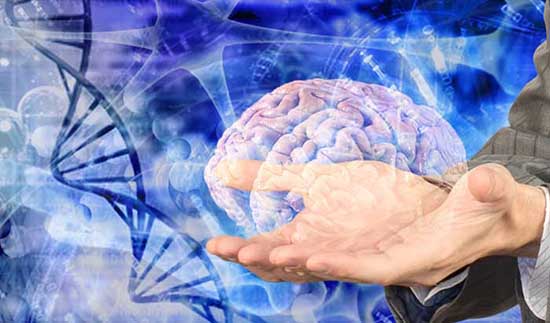
Scientists at Albert Einstein College of Medicine have found that stem cells in the brain's hypothalamus govern how fast aging occurs in the body. The hypothalamus was known to regulate important processes including growth, development, reproduction and metabolism. In a 2013 Nature paper, Einstein researchers made the surprising finding that the hypothalamus also regulates aging throughout the body. Now, the scientists have pinpointed the cells in the hypothalamus that control aging: a tiny population of adult neural stem cells, which were known to be responsible for forming new brain neurons.
New genetic variants associated with extreme old age Science Daily - April 26, 2017
The search for the genetic determinants of extreme longevity has been challenging, with the prevalence of centenarians (people older than 100) just one per 5,000 population in developed nations. But a recently published study that combines four studies of extreme longevity, has identified new rare variants in chromosomes 4 and 7 associated with extreme survival and with reduced risks for cardiovascular and Alzheimer's disease.
Critical step in DNA repair, cellular aging pinpointed Science Daily - March 24, 2017
The body's ability to repair DNA damage declines with age, which causes gradual cell demise, overall bodily degeneration and greater susceptibility to cancer. Now, research reveals a critical step in a molecular chain of events that allows cells to mend their broken DNA. DNA repair is essential for cell vitality, cell survival and cancer prevention, yet cells' ability to patch up damaged DNA declines with age for reasons not fully understood.
Scientists unveil a giant leap for anti-aging Science Daily - March 23, 2017
UNSW researchers have made a discovery that could lead to a revolutionary drug that actually reverses ageing, improves DNA repair and could even help NASA get its astronauts to Mars. In a paper published in Science today, the team identifies a critical step in the molecular process that allows cells to repair damaged DNA.
Maximum human lifespan has already been reached Science Daily - October 5, 2016
A new study suggests that it may not be possible to extend the human life span beyond the ages already attained by the oldest people on record. Since the 19th century, average life expectancy has risen almost continuously thanks to improvements in public health, diet, the environment and other areas. On average, for example, U.S. babies born today can expect to live nearly until age 79 compared with an average life expectancy of only 47 for Americans born in 1900. Since the 1970s, the maximum duration of life -- the age to which the oldest people live -- has also risen. But according to the Einstein researchers, this upward arc for maximal lifespan has a ceiling -- and we've already touched it.
Gene linked to youthful looks has been discovered, scientists claim The Guardian - May 3, 2016
>
In a study published today, scientists in Rotterdam claim for the first time to have found a gene that specifically affects how old people look. The gene came to light when researchers noticed that people who carried mutations in the gene appeared, on average, two years older than they were. If verified, finding could help understand how people's faces change with time, and may ultimately lead to ways of slowing the most visible effects of aging.
'
 Do Presidents Age Faster Than the Rest Of Us? Discovery - March 24, 2016
Do Presidents Age Faster Than the Rest Of Us? Discovery - March 24, 2016
Why are 95% of people who live to 110 women? You're as old as your stem cells Science Daily - June 4, 2015
Human supercentenarians share at least one thing in common--over 95 percent are women. Scientists have long observed differences between the sexes when it comes to aging, but there is no clear explanation for why females live longer. In a discussion of what we know about stem cell behavior and sex, researchers argue that it's time to look at differences in regenerative decline between men and women. This line of research could open up new explanations for how the sex hormones estrogen and testosterone, or other factors, modify lifespan.
Scientists identify signature of aging in the brain PhysOrg - September 29, 2014
How the brain ages is still largely an open question - in part because this organ is mostly insulated from direct contact with other systems in the body, including the blood and immune systems. In researchers found evidence of a unique "signature" that may be the "missing link" between cognitive decline and aging. The scientists believe that this discovery may lead, in the future, to treatments that can slow or reverse cognitive decline in older people.
Biologists delay the aging process by 'remote control' Science Daily - September 8, 2014
Biologists have identified a gene that can slow the aging process when activated remotely in key organ systems. The life scientists, working with fruit flies, activated a gene called AMPK that is a key energy sensor in cells. Increasing AMPK in the intestine increased the fly's life by about 30 percent, and the fly stayed healthier longer as well. The research could have important implications for delaying aging and disease in humans.
Strategy proposed for preventing diseases of aging PhysOrg - July 23, 2014
Medicine focuses almost entirely on fighting chronic diseases in a piecemeal fashion as symptoms develop. Instead, more efforts should be directed to promoting interventions that have the potential to prevent multiple chronic diseases and extend healthy lifespans. Researchers writing in the journal Nature say that by treating the metabolic and molecular causes of human aging, it may be possible to help people stay healthy into their 70s and 80s.
Youth-drug can 'reverse' aging in animal studies BBC - December 20, 2013
US scientists have performed a dramatic reversal of the aging process in animal studies. They used a chemical to rejuvenate muscle in mice and said it was the equivalent of transforming a 60-year-old's muscle to that of a 20-year-old - but muscle strength did not improve.
Depression 'makes us biologically older' BBC - November 12, 2013
Depression can make us physically older by speeding up the aging process in our cells, according to a study. Lab tests showed cells looked biologically older in people who were severely depressed or who had been in the past. These visible differences in a measure of cell aging called telomere length couldn't be explained by other factors, such as whether a person smoked.
Aging really is 'in your head' PhysOrg - September 3, 2013
Among scientists, the role of proteins called sirtuins in enhancing longevity has been hotly debated, driven by contradictory results from many different scientists. But new research at Washington University School of Medicine in St. Louis may settle the dispute. Reporting Sept. 3 in Cell Metabolism, Shin-ichiro Imai, MD, PhD, and his colleagues have identified the mechanism by which a specific sirtuin protein called Sirt1 operates in the brain to bring about a significant delay in aging and an increase in longevity. Both have been associated with a low-calorie diet. The Japanese philosopher and scientist Ekiken Kaibara first described the concept of dietary control as a method to achieve good health and longevity in 1713. He died the following year at the ripe old age of 84 - a long life for someone in the 18th century.
Brain Region Found to Control Aging Live Science - May 1, 2013
For the first time, a brain region has been found that may control aging throughout the whole body, a new study reports. A signaling pathway in the brain region known as the hypothalamus could speed up or slow down aging in mice. If it applies in humans, the discovery could open up possibilities for slowing age-related diseases and increasing life span. "There's really not much understanding regarding the mechanism of aging," said senior author Dr. Dongsheng Cai, a molecular pharmacologist at Albert Einstein College of Medicine in New York. The hypothalamus, an almond-size structure deep inside the brain, is known to control important functions, including growth, development, reproduction and metabolism. Now, Cai and his team have found that an immune system pathway in the hypothalamus also has a role in controlling aging. Usually, the immune system is involved in fending off infection or damage, but studies have also linked inflammatory changes with age-related conditions, including cardiovascular disease and neurodegenerative diseases. Still, these changes weren't known to actively trigger aging.